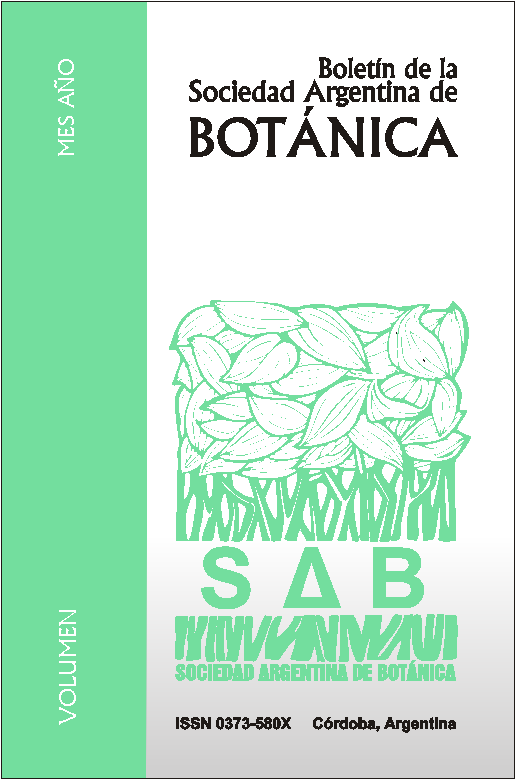Supraoptimal ethylene acts antagonistically with exogenous gibberellins during Solanum lycopersicum (Solanaceae) hypocotyl growth.
DOI:
https://doi.org/10.31055/1851.2372.v51.n2.14836Palavras-chave:
Etileno, giberelinas, tomate, elongación del hipocótilo.Resumo
In many plant species, ethylene and gibberellins interact to regulate plant growth and development. In some cases, these hormones can act in a synergistic way whereas in others they can be antagonistic. To date, the control of hypocotyl elongation by ethylene and gibberellins has been poorly explored in tomato. In this paper, we report that, application of exogenous ethylene to tomato seedlings or high endogenous ethylene production, as in the epinastic mutant, strongly prevent the effect of gibberellic acid (GA3) application. Moreover, constitutive activation of gibberellin signal in a DELLA deficient mutant is not able to counteract the inhibitory effect of ethylene on hypocotyl elongation, suggesting that ethylene acts independently from DELLA-mediated gibberellin response. Interestingly, when ethylene perception is blocked, the GA3 promotive effect on hypocotyl length is less effective, indicating that the presence of a basal level of ethylene could synergistically enhance hypocotyl growth. Taken together, these observations may suggest that, in tomato, supraoptimal concentrations of ethylene are able to antagonize gibberellin effect but normal levels seem to promote gibberellin-induced hypocotyl elongation.
Downloads
Publicado
Edição
Seção
Licença
Proporciona ACESSO ABERTO imediato e livre ao seu conteúdo sob o princípio de tornar a pesquisa livremente disponível ao público, o que promove uma maior troca de conhecimento global, permitindo que os autores mantenham seus direitos autorais sem restrições. 
Material publicado em Bol. Soc. Argent. Bot. é distribuído sob uma licença Creative Commons Attribution-NonCommercial-ShareAlike 4.0 International License. 





